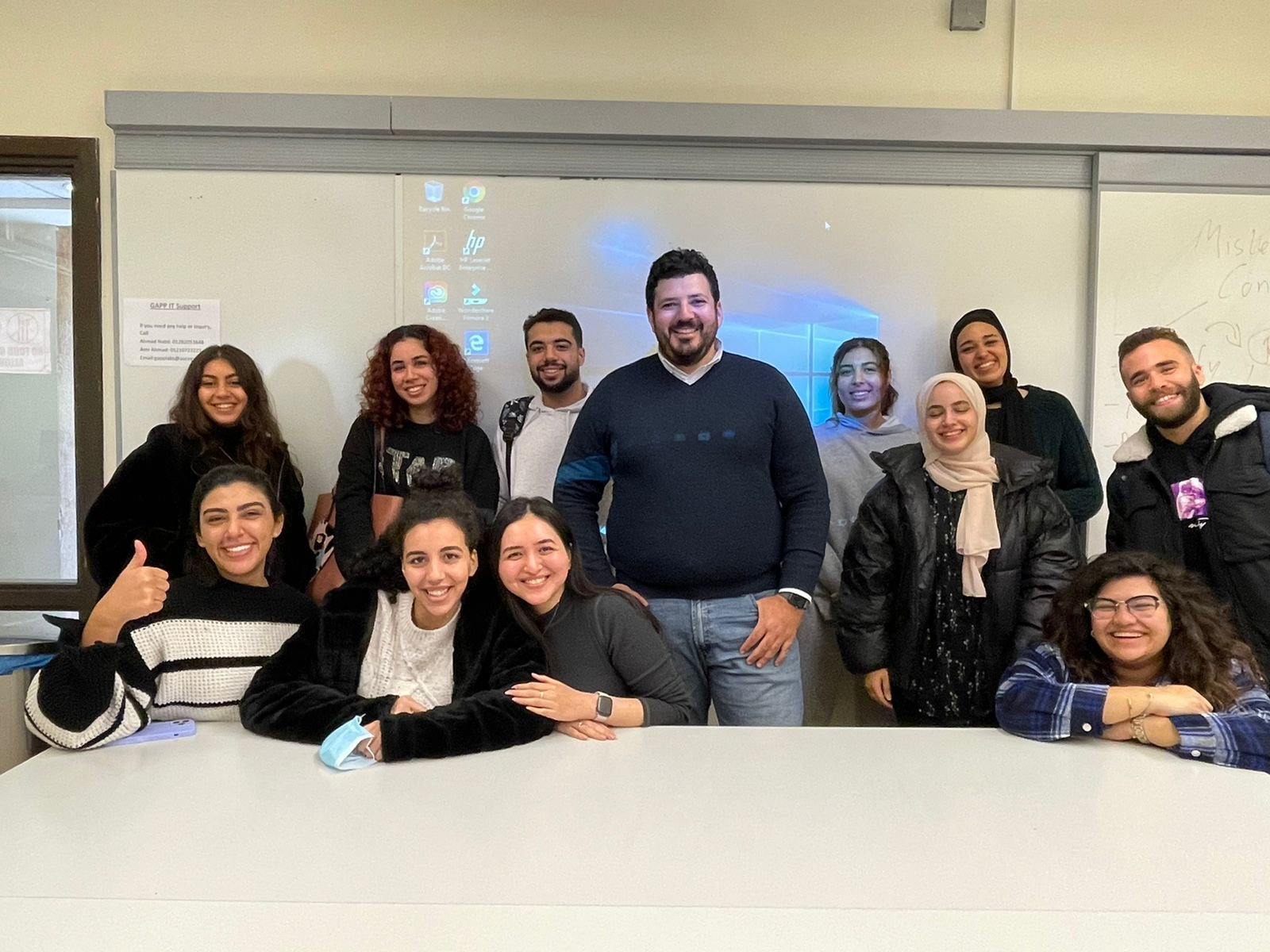Originally from Egypt, Amr Eleraqi is a journalist, author and instructor at Toronto Metropolitan University in Canada.
He is the founder of the award-winning data journalism website, InfoTimes, and a former ICFJ Knight Fellow. His latest book, on Python coding skills for journalists, was released at the start of this year.
Eleraqi spoke with IJNet about his start in journalism, media in both the Middle East and Canada, his new book project and more.
Here’s our conversation:
Would you tell me a little bit about your background?
I studied business administration at university, where I also learned statistics and economics. At the time, writing was my strongest skill, which drew me into the world of journalism. I started as an economics editor at a local newspaper specializing in financial markets, where I learned the principles and rules of the profession. My background in statistics helped me analyze data and read corporate financial statements, enabling me to produce in-depth reports on stock prices and market trends.
At the same time, I was always eager to discover how data can reveal hidden patterns in society. I often describe my career as driven by a blend of constant curiosity and a passion for storytelling. This approach led me to establish InfoTimes — an award-winning data journalism team — and to collaborate with various organizations, all in an effort to elevate the role of data-driven insights in the media.
Academically, my journey evolved to include a teaching aspect. I became an instructor at Toronto Metropolitan University, where I greatly enjoy simplifying complex concepts and making them accessible to everyone. I focus on showing how linking data to human stories can bring about positive change in society. Ultimately, I see myself today as a “data storyteller,” convinced that merging analytical thinking with human empathy is what enables journalism to broaden our perspectives and deepen our understanding of the world around us.

How did you get your start in journalism?
I began my journalism career back in 2004 as an economics editor, then transitioned into digital journalism at MBC, followed by a role as a main news editor for Yahoo’s Arabic section. Despite these early experiences, I often say my true start came in 2014, after returning from a U.S. trip organized by ICFJ. During that trip, I visited several leading American newsrooms — an experience that deeply inspired me.
One of the highlights was seeing how data and storytelling could converge, even in stories about something as routine as snowfall. It was eye-opening to watch journalists at places like The Washington Post coding scripts to produce interactive, data-driven pieces. Witnessing that fusion of data, technology, and narrative made me realize that journalism isn’t simply about reporting facts; it’s about uncovering the insights within those facts to spark empathy and positive change.
That revelation drove me to hone my skills in data analysis, visualization, and open-source tools, ultimately leading me to establish InfoTimes, and fully embrace the power of evidence-based storytelling.
Why did you decide to become a journalist?
I’ve always believed that empathy lies at the heart of impactful storytelling. Journalism, for me, is a gateway to expanding our collective empathy. By revealing truths and highlighting underrepresented voices, we help people see one another more clearly, bridging gaps that otherwise might remain invisible.
My decision to become a journalist was rooted in a desire to do more than just observe the world. I wanted to engage with it, uncover its intricacies, and bring forward the narratives that resonate with our shared humanity. Ultimately, I see journalism as a vehicle for fostering compassion, sparking dialogue, and contributing to the greater good.
For international observers who’d like to follow current events in the Middle East, are there any English-language outlets you’d recommend?
I believe there’s no single “best” source — relying on multiple outlets is key to gaining a balanced perspective. Each media organization covers the region from its own vantage point, shaped by various political or editorial philosophies.
That said, I often emphasize news agencies like Reuters or the Associated Press because they tend to provide straightforward wire reports. Outlets such as the BBC, CNN, or Sky News provide live footage that I find particularly valuable. Personally, I trust what I can see in real time more than secondhand interpretations, so I lean heavily on live broadcasts. By combining these sources — both raw footage and curated analysis — you get a more nuanced understanding of what’s happening on the ground.
How would you describe the media environment in Canada?
Canada’s media environment is both vibrant and diverse. You’ll find public broadcasters like CBC that prioritize depth and regional coverage, alongside private media outlets such as CTV and Global News, which bring a wide spectrum of editorial voices. On top of that, there’s a growing appetite for digital and data-driven journalism — reflecting Canada’s broader culture of innovation and inclusivity.
Yes, there are challenges like funding cuts and corporate consolidation, but there’s an equally strong tradition of journalistic independence. Overall, it’s a media landscape that respects balanced coverage, encourages new voices to enter the conversation, and champions freedom of the press.
How has IJNet helped your career?
A major turning point in my career came when I discovered a digital media training opportunity organized by ICFJ. I applied and took part in an intensive online program, which was followed by training camps in Jordan and Morocco that focused on digital tools. The culmination was winning a month-long trip to the United States — all thanks to a single training opportunity I found on IJNet. I often say that experience truly changed my professional trajectory, and I always encourage colleagues to keep an eye on IJNet’s listings.
Beyond just listing opportunities, IJNet has been a real catalyst for my growth. From grants and fellowships to specialized workshops and conferences, it connected me to invaluable resources and a global community of journalists passionate about data-driven storytelling. Looking back, IJNet played a key role in bridging my interest in digital media with the global network of journalists who share the same vision.
You recently published a book. Would you tell me a little bit about it?
My new book, titled “The Code Behind the Story: Python Skills for Data Journalists,” was born out of a desire to make coding feel less intimidating for journalists. Data can amplify the impact of a story, yet many in the field shy away from it because they believe programming is too technical. This book demystifies Python with straightforward examples that tie directly to journalistic tasks: gathering data, cleaning it, analyzing it, and finally weaving it into a narrative that resonates.
My hope is that reporters, editors, and even newcomers to the field will discover how accessible data storytelling can be — and that coding is simply another powerful tool in their storytelling toolkit.
Do you have any advice for aspiring journalists?
I’d say, start with empathy. Journalism is fundamentally about people — so remain open to the human side of every story, whether it’s data-driven or anecdotal. Next, don’t be afraid to explore new tools and technologies; the digital realm is ripe with opportunities for innovative storytelling.
Remember, these tools are meant to serve your curiosity and compassion, not overshadow them. Seek mentorship, learn continuously, and stay adaptable. And lastly, trust your instincts but verify your facts — maintain rigorous standards of accuracy and accountability. The more you can balance heart with hard evidence, the more meaningful and impactful your work will become.
This interview has been edited lightly.
Photos by Salma Eldesoky.


